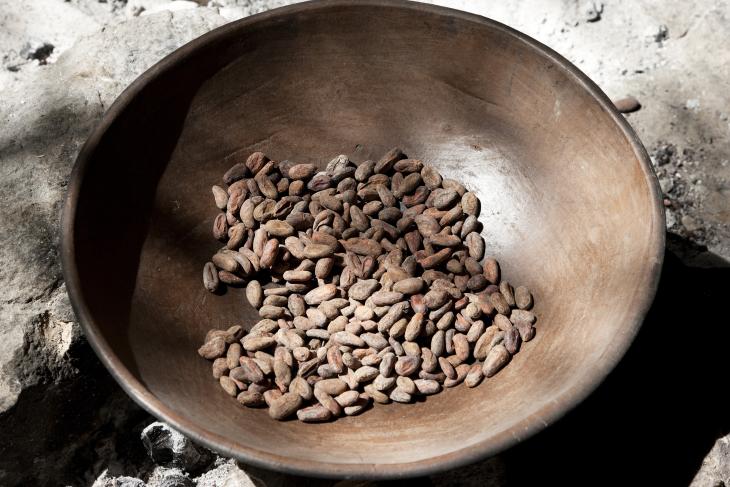Research on Efforts to Eliminate Child Labor and Forced Labor in the Cocoa Sector in High-Risk Countries

For decades, the cocoa industry has been controversial for its use of child and forced labor. A 2021 report from Zegers and Ayenor indicates that in Côte d’Ivoire and Ghana, which account for more than 60 percent of the global cocoa production, an estimated 14,000 adults are victims of forced labor, and an estimated 1.56 million children are working in the cocoa sector.
Child labor in the cocoa industry has been called one of the “worst forms of child labor” because children often work long hours, must use dangerous tools, are exposed to chemicals, and experience beatings and cruel treatment.
Measuring the Progress of Eliminating Child Labor
AIR is conducting a research study funded by the U.S. Department of Labor (USDOL) to support engagement of the USDOL Bureau of International Labor Affairs (ILAB) with key stakeholders to eliminate child and forced labor in the cocoa sector in high-risk countries. This work builds on a 2001 voluntary public-private agreement protocol signed by U.S. Senator Tom Harkin, U.S. Representative Eliot Engel, and cocoa and chocolate industry leaders, a 2010 declaration in support of the protocol including the governments of Ghana and Côte d’Ivoire, and a 2021 report from the U.S. House of Representatives Committee on Appropriations encouraging USDOL to report on indicators of progress and best practices to eliminate child labor and forced labor in the cocoa sector.
For this research AIR will: 1) develop indicators to measure the progress toward eliminating child labor and forced labor in the cocoa sector; and 2) assess how the governments, the cocoa industry, and worker's organizations in both Côte d’Ivoire and Ghana are addressing child and forced labor.
AIR is using a mixed methods approach, starting with a desk review to examine current practices, and identify indicators from existing projects. We are conducting key informant interviews with stakeholders such as foreign donors, civil society organizations, worker's and employer's organizations, cooperatives and farmer's associations, governments, and the international chocolate and cocoa industry companies, wholesalers, and value chain management agencies. AIR will analyze the suitability of indicators, develop draft indicators; and validate and refine the indicators in stakeholder workshops.
Through field work, interviews, desk review, and stakeholder validation workshops, AIR will draft and refine indicators of progress and provide an assessment of current work to eliminate child and forced labor in the cocoa sector.

